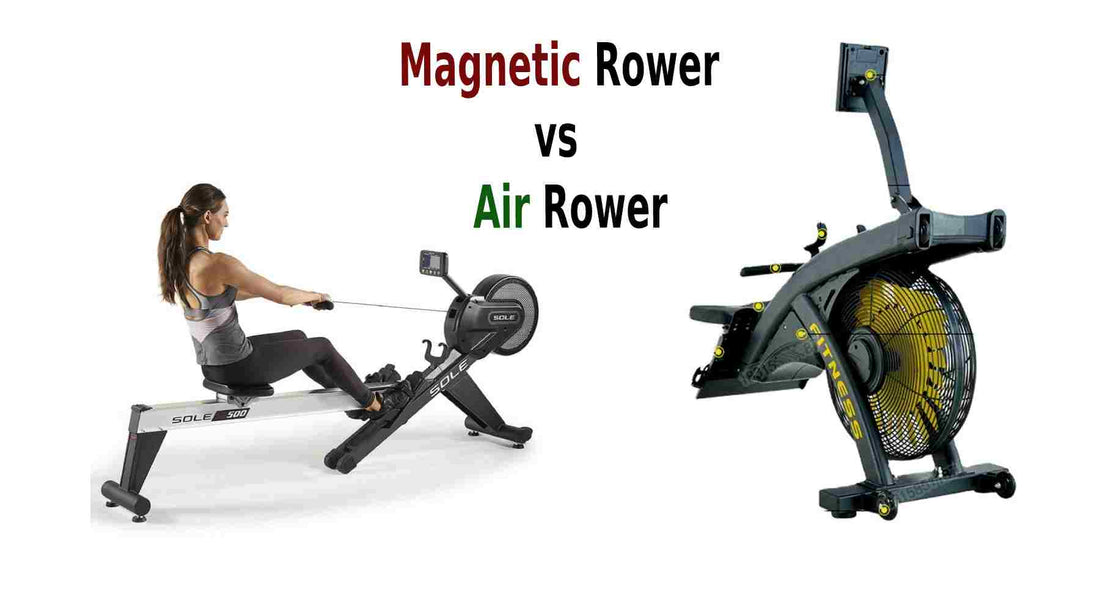The issue of air vs magnetic rowing machines is always hard to conclude. The Air rowing machine rotates a flywheel while a user pulls a handle to provide resistance using air. The flywheel must move the air on its front and sides while it rotates, which generates resistance that needs to be overcome with force.
A magnet is used in the flywheel of a magnetic rower to generate resistance. Similar to an air rower, a magnetic rower produces resistance that you must overcome by pushing the handlebar that is strapped to the fan flywheel. Magnetic rowers employ a magnet's eddy current to prevent the flywheel from spinning, whereas air rowers move the air around the flywheel to provide resistance.
These air and magnetic rowing machines each offer a full-body workout that is excellent for your joints, but they function a little bit differently. When picking between magnetic and air-based rowing machine types, the most important considerations are how noisy they are to use, how relatively affordable they are, if you can alter the resistance to suit your needs, and of course the general structure.
Difference between Air and Magnetic Rowing Machines
Here are some points you should consider before making your decision.
Air Rowers | Air Rowing Machine Pros and Cons
Pros
Since they often produce a smooth action, air rowers are excellent at simulating real rowing movements. Their resistance can also be adjusted slightly to your stroke pace, which is wonderful for the workout. Since their average cost is a little lower than other rowers', air rowers are more frequently found in commercial facilities than other types of rowers. Additionally, the majority of trainers frequently favor air rowers for off-season training.
Cons
Despite the fact that air rowers have several advantages, noise is one of the main drawbacks. Air rowers are notoriously noisy cardio equipment, so they might not be the best choice for a home gym. The more force you exert during rowing, the more air is forced into the opposing chamber, which causes the loud noise. That causes a loud whooshing sound as a result.
Magnetic Rowers | Magnetic Rowing Machine Pros and Cons
Pros
The users enjoy the magnetic rowers in particular while using them at home. The magnetic rowers are incredibly silent, typically smaller than air and water rowers, and both of these characteristics help to make them perfect for use at home. Magnetic rowing machines are a fantastic alternative for persons who want to emphasize strength training and carefully monitor progressive loading over time. They offer specified degrees of resistance ranging from merely 5 or 6 up to 20. The users of magnetic rowers frequently find them to be lightweight, and the magnetic mechanism provides very exact resistance levels.
Cons
The magnetic rowing machines are great for preset workout programs but the competitors need accuracy when training which water and air rowers provide better. Hence, magnetic rowers are not an ideal choice for training or competitions.
Conclusion-
Your decision to choose between the two will depend on what benefits you're looking for because both types of rowers have them. Air rowers provide limitless resistance and simulate genuine water more closely. For individuals who want to get the most out of their strength training, magnetic rowers are the best choice because they are quieter and provide you with greater control over the resistance level.



